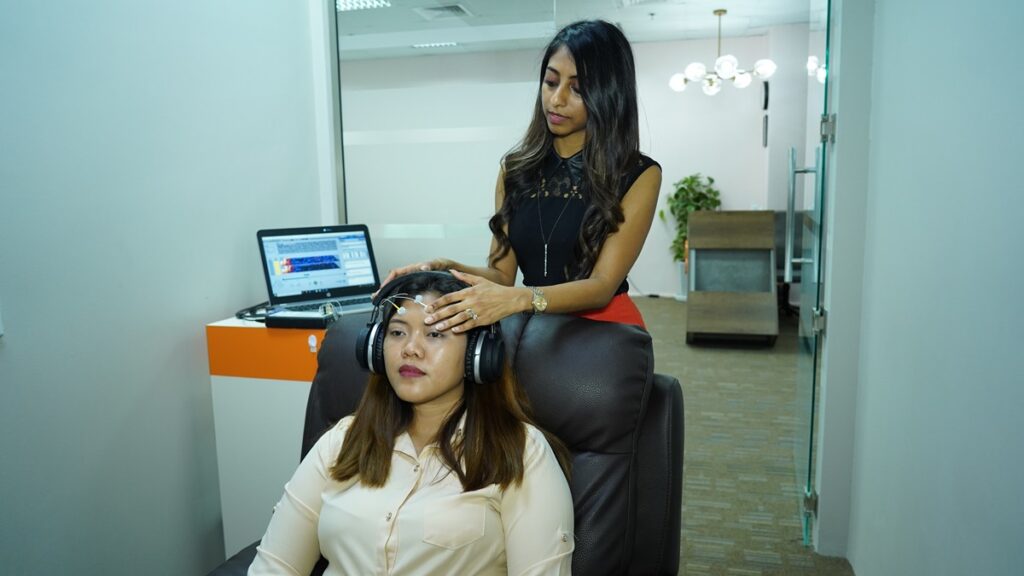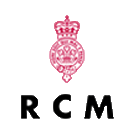Evolve Brain Training: Boost Your Brain | Brain Training Dubai
Non-Invasive Depression Treatment in Dubai
Depression is a state of mind wherein the person experiences an intense feeling of sadness and pessimism. Unfortunately, not many know that depression symptoms can seriously harm one’s ability to participate in life and fully realize one’s potential.
With depression, sad and anxious feelings are persistent over long periods of time and interfere with day-to-day functioning. While there are various types of depression treatment options available that have shown clinical benefit, it is important to find the right method or combination of methods that will work best for each individual. If you’re looking for a treatment for depression without medication, the science-based method of neurofeedback can help.
Did You Know?
Common Symptoms
- Low self-esteem and lack of interest
- Lack of Interest
- Low motivation levels
- Changes in sleep cycle
- Abnormal appetite
How Does Brain Training Help People Overcome Depression?
We all face depression at some point in our lives and get stuck without knowing the solution of how to get rid of it.
Our depression treatment in Dubai is a medication-free program. With neurofeedback, we can now train our brain to overcome depression and enjoy life to the fullest.
Electroencephalogram (EEG) sensors are taped to your scalp. These sensors monitor your brainwave activity, which allows the software to provide you with feedback of exactly what your brain is doing.
While these sensors stay attached, you can watch any show that you want on television. Whenever you promote healthy brain activity, the TV screen becomes big and the audio gets clear. These outputs act as a reward for your brain.
Over time, you will be able to independently control your thoughts and emotions in order to feel positive. By the end of your customized brain training program for treating depression without medication, you will be able to process emotions, concentrate on your work and see significant improvements in your relationships with near and dear ones.

Depression is a medical condition, and it is not something you can simply wish away. The good news is that there are therapeutic ways of managing depression and its debilitating symptoms. One of these is neurofeedback therapy. Book your free 15-minute depression counseling session at our Dubai neurofeedback clinic today.
Testimonials
I have completed 20 sessions at Evolve and I’m amazed! I am a happy person now with a full potential brain. I suffered from extreme depression and anxiety for years which prompted me to try the sessions with Dr Upasana. She helped me cope up with my constant overthinking, sadness, lack of motivation in achieving short and long term goals. I feel more energetic, motivated and confident now. I’m so happy with the results. Thanks to Dr. Upasana and her team!

Rabia Khalid
I was going through a divorce and that’s when my depression started. It came with many other symptoms like anxiety, stress and insomnia. After my 20 sessions, i felt like a new person. I am now much calmer and feel much more positive. Earlier, I wouldn’t even be able to get out of the house. I plan on continuing my sessions at Evolve as it has benefitted me alot.

M.M
How It Works
Initial consultation
We will discuss your specific needs and goals during consultation.
Neuropsychosocial assessment
We will do an in-depth assessment to understand your brain’s current strengths and weaknesses
Personalized training plan
Get a customized plan tailored to your specific needs.
Neurofeedback training
We begin your neurofeedback training sessions to help sharpen your brain.
Final assessment
We will repeat the neuropsychosocial assessment to track your progress.
Book Your Free 15-Minute Consultation
Let us help you make mental health a priority. Get a free, no-strings attached session to get started.
Learn More About Neurofeedback
Dobrushina, O., Arina, G., Osina, E., & Aziatskaya, G. (2017).
Walker JE. (2011).
Perez-Elvira, Ruben & Carrobles, José & Bote, Diego & Oltra-Cucarella, Javier. (2019).
Kosari Z, Dadashi M, Maghbouli M, Mostafavi H. (2019).
Sitaram R. et al. (2017).
Wigton N. & Krigbaum G. (2015).
Ros T. et al. (2014).
Ghaziri J. et al. (2013).
Coenan A. et al. (2009).
Yue Hou,Shuqin Zhang,Ning Li,Zhaoyang Huang,Li Wang,Yuping Wang (2021).
Dreis, Stephanie & Gouger, Angela & Perez, Edward & Russo, G. & Fitzsimmons, Michael & Jones, Mark. (2015).
Kerson, C., Sherman, R. A., & Kozlowski, G. P. (2009).
Hammond, D.. (2005).
Hammond, D.. (2005).
Thomas, J.E., & Sattlberger, E. (2007).
Kosari Z, Dadashi M, Maghbouli M, Mostafavi H.(2019).
Dobrushina, O., Arina, G., Osina, E., & Aziatskaya, G. (2017).
Walker JE. (2011).
Perez-Elvira, Ruben & Carrobles, José & Bote, Diego & Oltra-Cucarella, Javier. (2019).
Kosari Z, Dadashi M, Maghbouli M, Mostafavi H. (2019).
Sitaram R. et al. (2017).
Wigton N. & Krigbaum G. (2015).
Ros T. et al. (2014).
Ghaziri J. et al. (2013).
Coenan A. et al. (2009).
Yue Hou,Shuqin Zhang,Ning Li,Zhaoyang Huang,Li Wang,Yuping Wang (2021).
Dreis, Stephanie & Gouger, Angela & Perez, Edward & Russo, G. & Fitzsimmons, Michael & Jones, Mark. (2015).
Kerson, C., Sherman, R. A., & Kozlowski, G. P. (2009).
Hammond, D.. (2005).
Hammond, D.. (2005).
Thomas, J.E., & Sattlberger, E. (2007).
Kosari Z, Dadashi M, Maghbouli M, Mostafavi H.(2019).
Dobrushina, O., Arina, G., Osina, E., & Aziatskaya, G. (2017).
Walker JE. (2011).
Perez-Elvira, Ruben & Carrobles, José & Bote, Diego & Oltra-Cucarella, Javier. (2019).
Kosari Z, Dadashi M, Maghbouli M, Mostafavi H. (2019).
Frequently Asked Questions on Depression Treatment in Dubai
Is depression a disease?
Although depression can have an impact on your physical health and well-being, causing fatigue, stomach upset, restlessness, weight changes, nausea, and other symptoms, it is a mental health disorder, not a disease.
It is for this reason that most treatments used for depression are regarded as therapy, with the goal of improving a person’s mood and balancing their emotions.
What causes depression?
Medical science has yet to discover the root cause of depression because it differs from case to case and patient to patient.
The most common causes of depression in individuals have been reported to be a genetic predisposition, traumatic life events, faulty emotional regulation by the brain, health issues, drug interactions (side effects of medication), and personality type.
What is the most effective form of depression treatment?
There are many treatments available for managing depression. Your physician will typically recommend the best treatment for you based on your symptoms.
However, neurofeedback therapy has been shown in many studies to be quite effective in the treatment of chronic and severe depression. It is a research-based intervention that improves brain function through brain training exercises.
How do I know if I have depression?
Some of the most common symptoms of depression are emotions that everyone experiences at some point in their lives.
When these feelings linger for a long time, that is when they become a cause for concern. If you’ve been having persistent feelings of anxiety, mood swings, changes in your sleep cycle, low self-esteem, or an abnormal appetite, it’s time to see a doctor.
How much does it cost to treat depression in Dubai?
The cost of depression treatment in Dubai is subjective because each clinic sets its own rates using proprietary costing techniques.
The cost to you will also be determined by your psychologist’s experience, the location of the clinic, the frequency of your treatment, and other factors. However, the average price for a session starts at 575 AED and goes up from there.
Can I treat depression without taking medication?
Even though medications are a prevalent and helpful treatment option for many people suffering from depression, there are other options available, many of which do not require the use of medication in the course of treatment.
Worthy of note is neurofeedback therapy, which involves the use of Electroencephalogram (EEG) sensors attached to your scalp to promote healthy brain activity and teach your brain to overcome depression.
Does insurance cover mental health treatment in Dubai?
According to a circular issued by the Dubai Health Authority (DHA), mental health treatments are now covered under basic health insurance plans in Dubai.
However, not all clinics process insurance claims. Make sure to discuss your payment options with your doctor before you begin treatment; in most cases, you should be able to obtain a statement that you can file with your insurance provider.
Is there a permanent cure for depression?
Unfortunately, there is no permanent cure for depression that has been shown to successfully improve the symptoms of patients suffering from treatment-resistant depression.
The goal of most treatments for depression is to alleviate the symptoms into remission or, at the very least, reduce the number of times you have to go in for treatments in a year.
How will I know if my depression treatment is effective?
Everyone’s brain is unique, with different stressors affecting brain performance, health, and mood. As a result, your recovery will be specific to how your brain works and the symptoms you are battling with the most.
Nonetheless, most people report clearer perception, positive mood changes, improved sleep habits, less irritability, and greater emotional resiliency after several sessions of depression treatment such as neurofeedback.
How many sessions of depression treatment will I need?
The number of sessions you will need to complete during your first course of depression treatment will be determined by the severity of your symptoms as well as the type of treatment you are receiving.
For example, the average number of sessions recommended for people who choose to undergo neurofeedback therapy is 20. After that, follow-up treatments are usually scheduled as needed.
Evolve Brain Training is one of the top healthcare centers in Dubai, with specialists who treat depression with non-invasive brain training techniques.
Get answers to your most urgent questions on our
Technology Used By


























